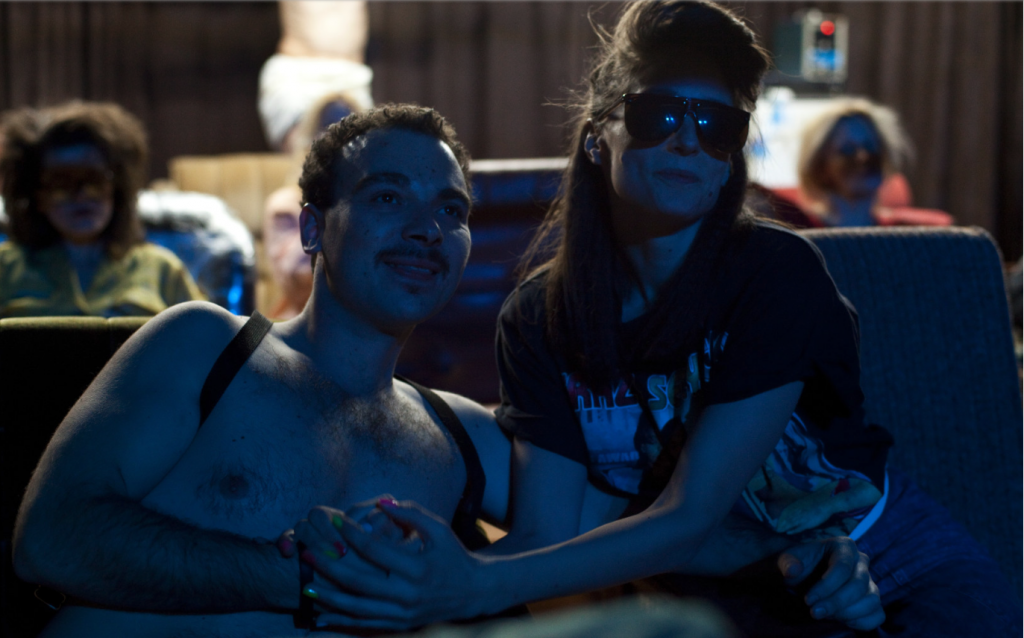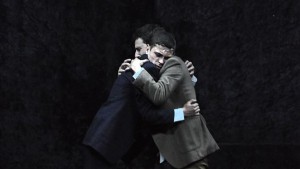Postcards from Vienna…
in a Serbian November
Walking the streets of Vienna in late November is like hanging out in a huge jewellery store. With help from the Christmas lights, every angle shines brightly, shaping the frame for a peculiar “urban-crossing” experience in which the smallest detail seems to be meticulously staged.

Nevertheless, before becoming one of the most stimulating and vibrant European metropolises, Vienna used to be the centre of a wide empire, made unique by its stunning variety of cultures and ethnic melting pots. Though these very features played a role in the Empire’s fall, they indeed are the root of a surprising cultural heritage. Now, the Austrian capital dedicates a showcase to the Serbian part of such heritage that has remained active and relevant throughout the years in the Central European and, generally, in the Western culture.
The Serbian November was organized in the context of the Austrian-Serbian Culture Year, in synergy with the Volkstheater in Vienna that offers two venues, the main playhouse and the Volx/Margareten.
Branislav Nušić was the author of Pokojnik (The Deceased), a 1937 classic comedy staged by young director Igor Vuk Torbica, produced by Yugoslav Drama Theatre with members of the Faculty of Dramatic Arts of Belgrade, where Torbica graduated. Unexpectedly returning to life, the deceased mentioned in the title finds no celebrations but a feud between the members of the family that have portioned his heritage, stepping over every rule of respect. On the huge stage of Volkstheater, the visual and textual structure brings us back to a classical early nineteenth century imagery, though the events are set in the late 70s, casting a light on the communist approach to the creation of a selected ruling class during Tito’s dictatorship. A high pace and a very good synergy between the young actors bring the director to fill the texture of acting and stage movement with perhaps too many tricks that tickle the audience’s laughter, making the political subtext hard to follow, at least for the ones who must rely on the surtitles. The result is an entertaining piece of well-staged theatre that collects a warm round of applause, especially from the Serbian spectators. And yet, the tight bond between the translation and the non-Serbian speakers in order to understand the text prevented that part of the audience from fully comprehending the historical thread that is certainly crucial in such critical operations.
Another production of the Serbian November was able to complete three different, and equally important, tasks: To represent a credible excerpt of the current theatrical trends in Serbia; to give an example of the clash between former Yugoslav and Central European cultures; and to discuss the themes of immigration and integration, so pressing in international political discourse.
The new staging of Rainer Werner Fassbinder’s Katzelmacher (Žabar in Serbian) by Bojana Lazić flows like an impetuous river through such contemporary issues, lying on a simple yet ingenuous set design and a group of strong and wild performers. The small space, circumscribed by a perimeter of black curtains, is entirely filled with old-fashioned armchairs, lined up to stare back at the audience.
Marie, Helga, Rosy, Gunda, Paul and Eric are the quintessential of the exclusive gangs from the outskirts of a contemporary metropolis: dirty, lascivious, lazy and totally closed to any contact with the “others”. They work for a factory in rural Germany at the service of a scowling boss, Elizabeth, a gangly woman with electrified hair and puppet-like movements. Such a squalid routine, deeply rooted in a genetic xenophobia and apparently impossible to be shaken, will find its balance-breaking element in Yorgos, a new worker from Greece. Though ignorant, barely able to articulate a sentence and initially open to being manipulated by the group, Yorgos learns to take advantage of one peculiar feature: being well-hung.
As in many Fassbinder’s plays and films, the sexual tension is the catalyst of social representation, misrepresentation, and, eventually, achievement. The language of the play is fragmented, dry, raw, and ironically artificial; the lines are continuously interrupted by flashy movements and sexual poses that weave an intricate web of allusions. Lazić keeps the actors in perpetual motion through repetitive acts – they continuously switch seats, take turns grabbing beers from a fridge and playing songs on the radio — creating a representation of the depraved rituals of contemporary intolerance.
The audience peeks at the activities of this absurd anthill of degradation, switching from being a spectator to being an unconscious accomplice. And this proves to be a successful way of portraying the responsibility of society not only in discriminating strangers, but also in keeping themselves away from the construction of a democratic environment. In other words, violence breeds violence, and the orgiastic lynching that puts an end to this apologue is even more chilling as it’s not enough to stop our giggling.
Published on 2 December 2015 (Article originally written in Italian)


